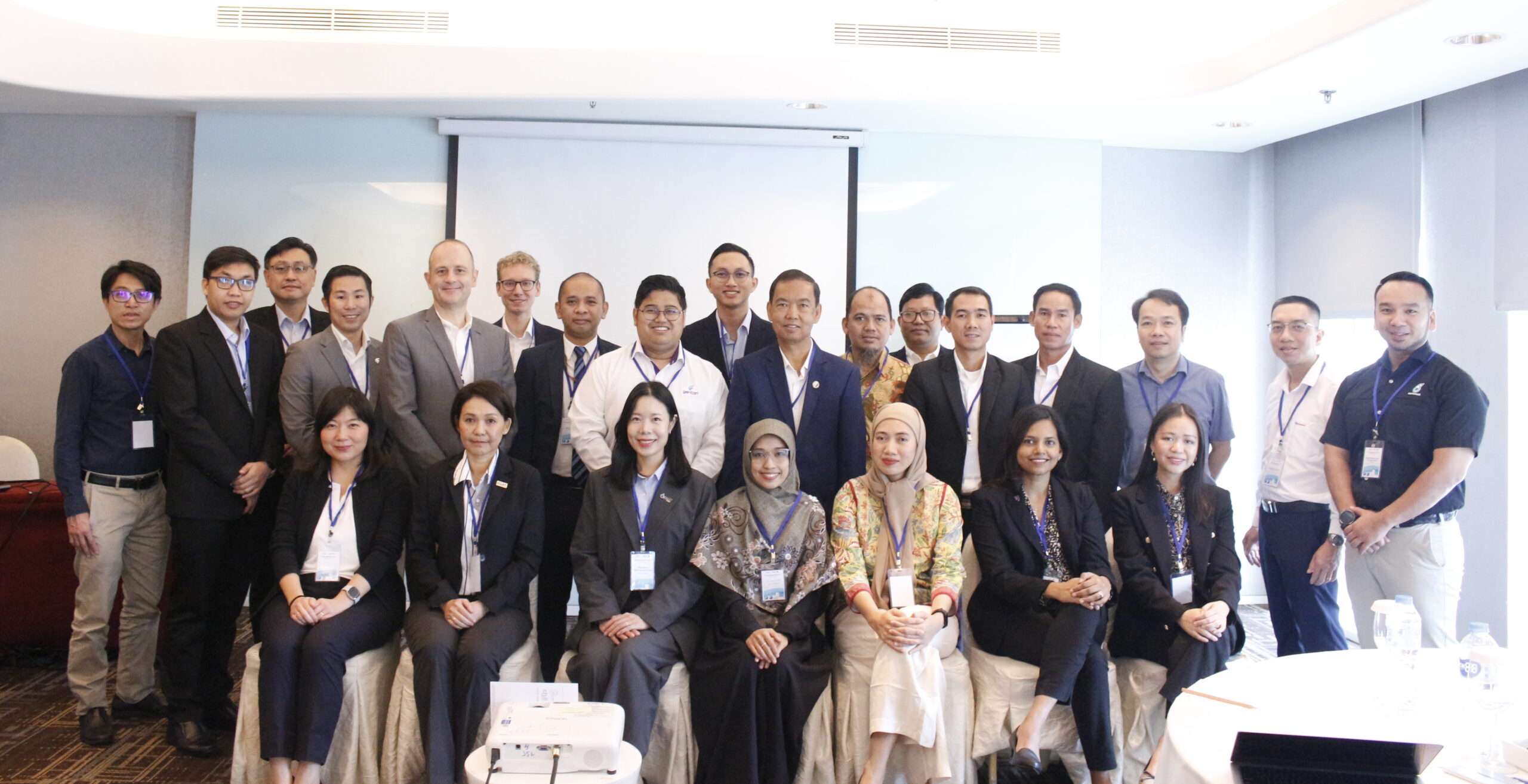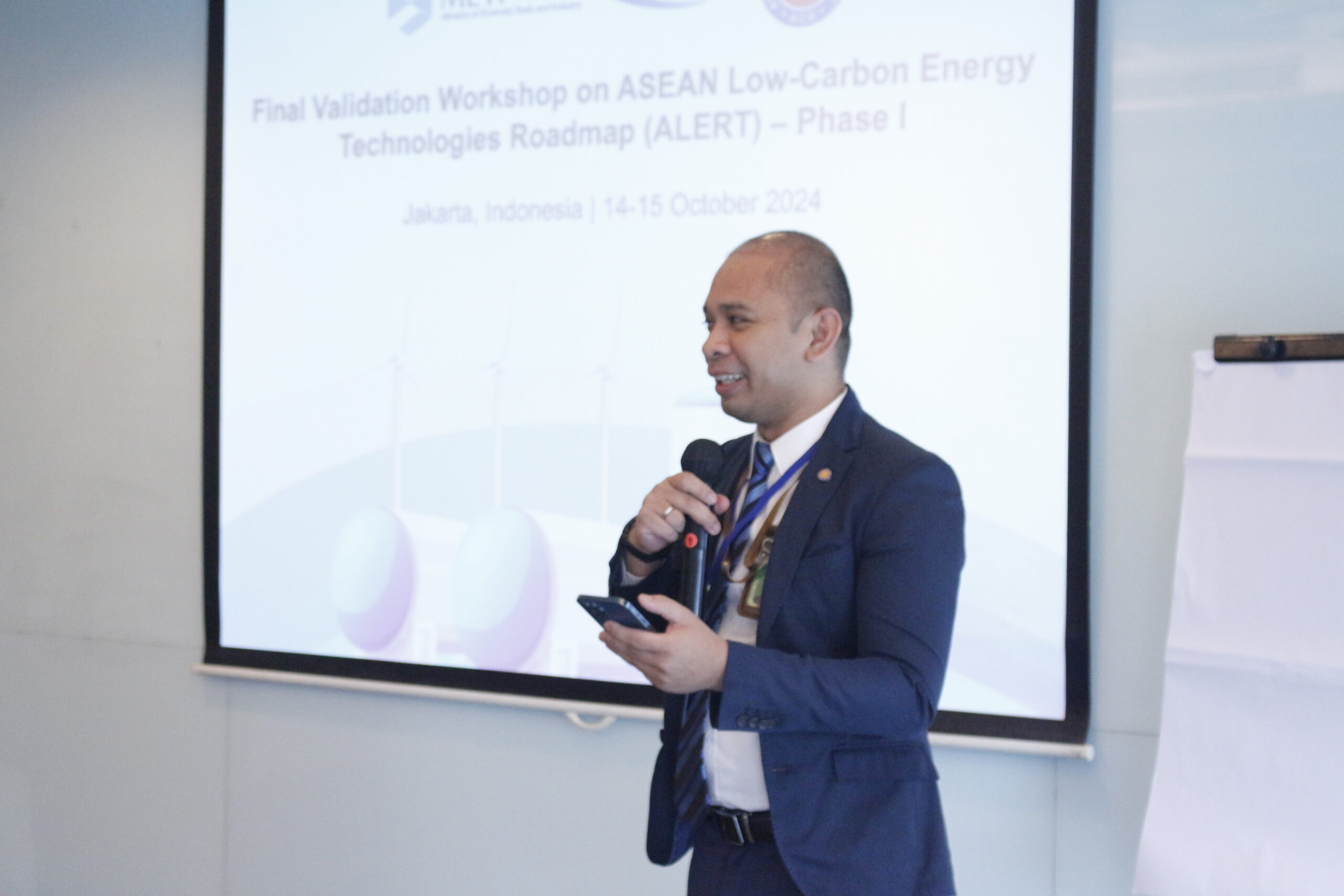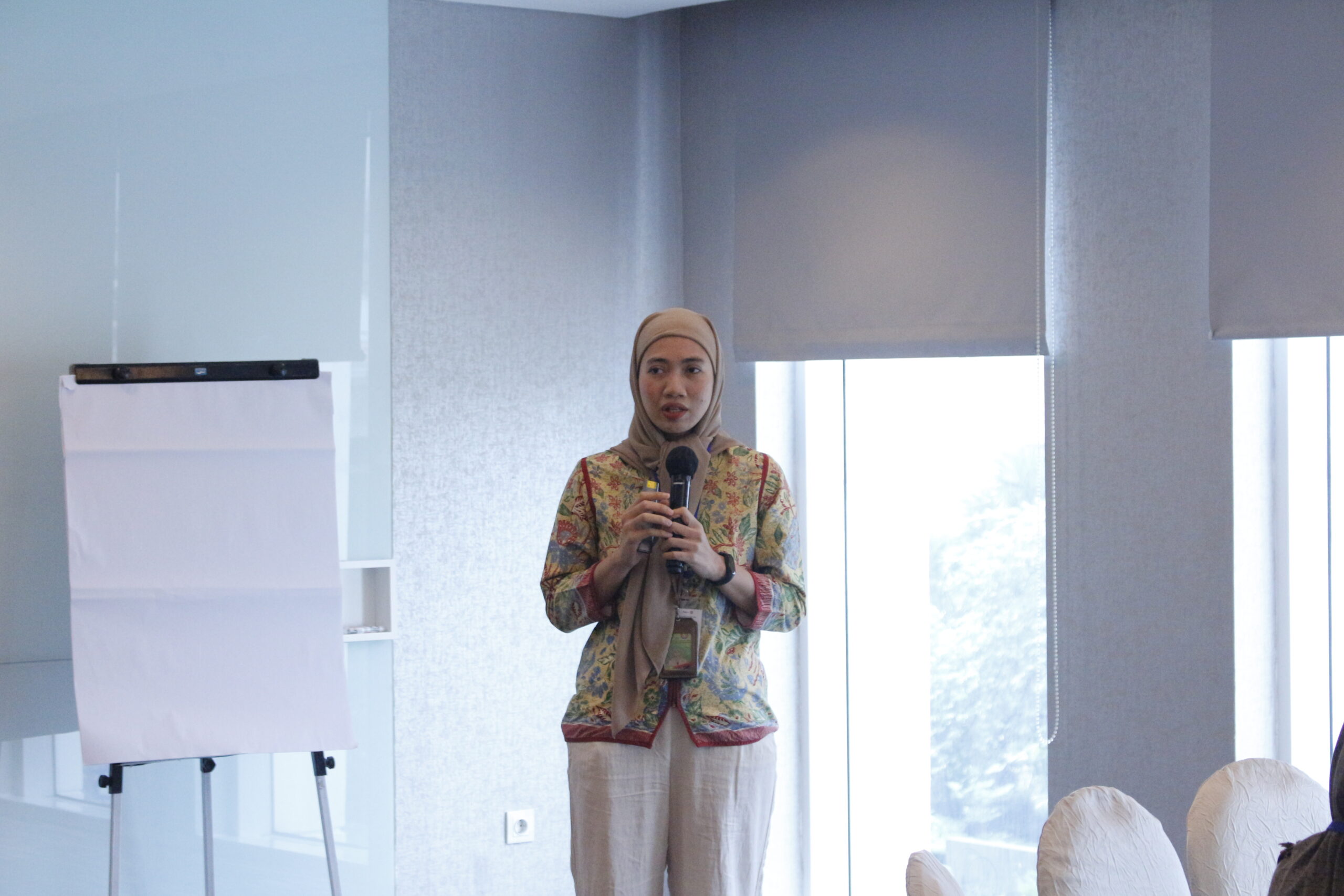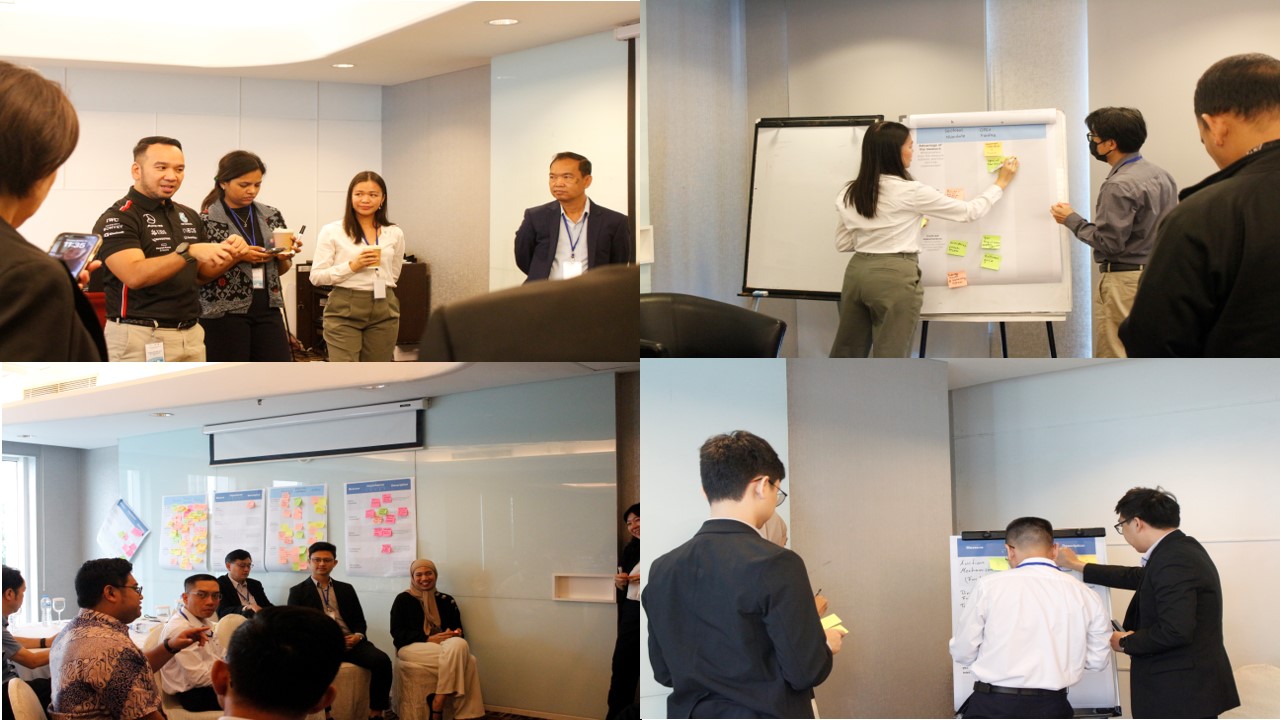Menu

Photo 1. Group Photo Session with the RE-SSN, HAPUA and ASCOPE representatives
The ASEAN Centre for Energy (ACE) organised a two-day final validation workshop for “ASEAN Low-Carbon Energy Technologies Roadmap (ALERT) Phase I: Study on Hydrogen and Ammonia” from 14 to 15 October 2024 in Jakarta, Indonesia. The study is supported by the Ministry of Economy, Trade, and Industry (METI) Japan through the Economic Research Institute for ASEAN and East Asia (ERIA). The two-day in-person workshop aimed to disseminate the key findings and recommendations of the study, diving into the role of hydrogen/ ammonia technology implementation in the long-term ASEAN decarbonisation strategy. The workshop brought together the representatives of nine (9) ASEAN Member States (AMS) which includes the representatives of the Renewable Energy Sub-Sector Network (RE-SSN), the Heads of ASEAN Power Utilities/Authorities (HAPUA), and the ASEAN Council on Petroleum (ASCOPE) to discuss the key learnings from existing projects and the next steps for hydrogen/ ammonia utilisation in the ASEAN region, aligned with the ASEAN Plan of Action for Energy Cooperation (APAEC) Phase II: 2021-2025, which aims to sets out ambitious targets and initiatives to enhance energy security and sustainability.

Photo 2. Opening Remarks by Beni Suryadi, Acting Executive Director of ASEAN Centre for Energy (ACE)
The first day of the workshop, commenced with opening remarks from Beni Suryadi, Acting Executive Director of ACE. He welcomed all esteemed participants and highlighted ACE’s commitment in supporting the AMS in identifying the key implementation steps towards wider hydrogen/ammonia deployment in ASEAN.

Photo 3. Presentation by Nadhilah Shani, Senior Research Analyst on Power at ACE
The first keynote presentation by Nadhilah Shani, Senior Research Analyst on Power at ACE, presented an overview of ASEAN Low-Carbon Energy Technologies Roadmap (ALERT) – Phase I study conducted by ACE and ERIA to map out the development of emerging low-carbon technologies to reinforce their role in ASEAN’s decarbonisation strategy. Pascal Klüver, Managing Consultant of TÜV SÜD, then showcased the key findings from the study, focused on global trends, ASEAN’s potential of low-carbon technologies, and the recommended way forwards towards low-carbon hydrogen future. Dr. Eng. Liana Christiani, Senior Consultant/ Hydrogen Expert of TÜV SÜD Indonesia explained the hydrogen value chain, including production, storage, and transportation.
The session transitioned into the ASEAN case studies on hydrogen and ammonia projects from the AMS. Chen Ping Shang, Head of Planning & Finance for Hydrogen at GENTARI, delved into the key learnings of GENTARI’s hydrogen projects, covering the findings of the hydrogen transportation project with City Energy Singapore. Fahmy Ryadin, Senior Specialist of Electricity Technology Development of PLN Nusantara Power shared insights on the feasibility of hydrogen/ammonia co-firing in thermal power generation in Indonesia.

Photo 4. Breakout group discussion with the AMS representatives moderated by TÜV SÜD Experts
In the afternoon session, the AMS participants were divided into groups for an interactive breakout session, moderated by TÜV SÜD. The groups explored on the policy frameworks necessary to support the deployment of hydrogen and ammonia technologies across ASEAN. The participants argued that incentives mechanisms and safety standards for hydrogen projects are two (2) of the main concerns that needed to be addressed in order to accelerate the progress of hydrogen utilisation in the future. Through the discussion, the participants agreed that a dedicated interface for key hydrogen players to interact and hold discussion is an important aspect in addressing those issues.

Photo 5. (left-right) Panel Discussion moderated by Dr. Ambiyah Abdullah (ACE) with Jitraporn Inchunjiw (EGAT), Dr Alloysius Joko Purwanto (ERIA), and Dir. Patrick T. Aquino, CESO III (DOE Philippines) as the panellists.
The session moved with a panel discussion moderated by Dr Ambiyah Abdullah, Senior Research Analyst, Energy Modelling, Policy, and Planning (MPP) Department at ACE, who delved into the opportunities and challenges for hydrogen deployment in ASEAN with panellists Jitraporn Inchunjiw (EGAT), Dr Alloysius Joko Purwanto (ERIA), and recorded presentation by Dir. Patrick T. Aquino, CESO III (DOE Philippines). The discussion emphasised the importance of regional collaboration. TÜV SÜD facilitated the wrap-up session, summarised the day’s takeaways and outlined the agenda for the second day of the workshop.
The second day commenced with a presentation from Pascal, focusing on further discussion of the presentation on the European Hydrogen Bank (EHB) and pilot projects on hydrogen, which could be taken as a reference for ASEAN’s approach on enabling hydrogen. The presentations on specific hydrogen strategies of ASEAN countries followed the session with Alhaqurahman Isa of the Ministry of Energy and Mineral Resources Indonesia shared insights on Indonesia’s National Hydrogen Strategy and Dr Nurul Asyikin Kamaruzaman of the Ministry of Science, Technology and Innovation (MOSTI) explained the Malaysia’s Hydrogen Economy and Technologies Roadmap.

Photo 6. Second breakout group discussion with the AMS representatives moderated by ACE and TUVSUD Experts
The workshop featured a roundtable discussion that encouraged cross-sector collaboration to accelerate hydrogen adoption in the region. The second breakout discussion featured in this workshop discussed the challenges in funding and investment strategies for hydrogen development in the ASEAN region. Most of the participants stressed the importance sectoral mandates in influencing demand growth for hydrogen, as well as the need for direct funding for CAPEX and OPEX investments for hydrogen deployment. The workshop served as a vital platform for the key hydrogen stakeholders in ASEAN to collaborate, exchange knowledge, and share ideas on advancing hydrogen and ammonia technologies, reinforcing the region’s commitment to achieving carbon neutrality. The fruitful discussions throughout the workshop will be used to enhance the findings and recommendations of the study, as the study is crucial in providing reference for the inclusion of hydrogen topic in APAEC Post-2025.
